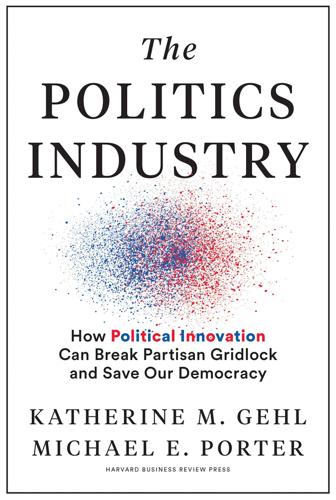
The Politics Industry: How Political Innovation Can Break Partisan Gridlock and Save Our Democracy
by
Katherine M. Gehl
and
Michael E. Porter
Published 14 Sep 2020
As of 2019, seven states—Maine, California, Colorado, Maryland, Massachusetts, Minnesota, and New Mexico—contain cities that have already implemented ranked-choice voting for municipal elections. On top of this, another four states—Florida, Michigan, Oregon, and Tennessee—contain cities that have adopted but not yet implemented ranked-choice voting for municipal elections. In 2018, Utah passed a pilot program that allows municipalities to use ranked-choice voting for 2019 elections (participating cities: Cottonwood Heights, Lehi City, Payson City, Vineyard City, and West Jordan City). See, “Ranked Choice Voting,” Ballotpedia, accessed April 2019, https://ballotpedia.org/Ranked-choice_voting_(RCV)#Ranked_choice_voting_in_the_United_States. 55.
…
“California Top-Four Primary Initiative (2018),” Ballotpedia, https://ballotpedia.org/California_Top-Four_Primary_Initiative_(2018); “FairVote California,” FairVote, https://www.fairvoteca.org/. 34. Marina Villeneuve, “AP EXPLAINS: Maine Tries Ranked-Choice Voting,” U.S. News, June 11, 2018, https://www.usnews.com/news/best-states/maine/articles/2018-06-11/ap-explains-maine-tries-ranked-choice-voting. 35. Jessie Scanlon, “Could Maine’s New Ranked-Choice Voting Change American Elections?” Boston Globe Magazine, October 17, 2018, https://www.bostonglobe.com/magazine/2018/10/17/could-maine-new-ranked-choice-voting-change-american-elections/6VqNC73bQzMrPd0RSepA8L/story.html. 36. Editorial Board, “Ranked-Choice Voting Unlikely to Gain Traction in Maine,” Sun Journal, November 11, 2010, https://www.sunjournal.com/2010/11/11/ranked-choice-voting-unlikely-gain-traction-maine/. 37.
…
“Enough’s Enough,” Ellsworth American, May 9, 2018, https://www.ellsworthamerican.com/opinions/editorials/enoughs-enough/. 49. Dennis Hoey, “Oscar Winner Jennifer Lawrence Lends Support to Ranked-Choice Voting,” Press Herald, June 7, 2018, https://www.pressherald.com/2018/06/07/oscar-winner-jennifer-lawrence-lends-support-to-ranked-choice-voting/. 50. “Maine Question 1, Ranked-Choice Voting Delayed Enactment and Automatic Repeal Referendum (June 2018),” Ballotpedia, https://ballotpedia.org/Maine_Question_1,_Ranked-Choice_Voting_Delayed_Enactment_and_Automatic_Repeal_Referendum_(June_2018). 51. Larry Diamond, “A New Age of Reform,” American Interest, November 16, 2018, https://www.the-american-interest.com/2018/11/16/a-new-age-of-reform/. 52.
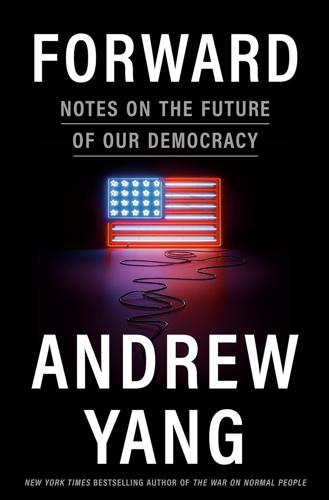
Forward: Notes on the Future of Our Democracy
by
Andrew Yang
Published 15 Nov 2021
Katherine Gehl and Michael Porter Gehl and Porter, Politics Industry, 126. The number of races deemed competitive Ibid., 129. In 2018, there were four Steve Mistler and Domenico Montanaro, “Ranked-Choice Voting Delivers Democrats a House Seat,” NPR, Nov. 15, 2018. Ranked-choice voting has been adopted “Where Ranked Choice Voting Is Used,” FairVote, accessed March 1, 2021, www.fairvote.org/where_is_ranked_choice_voting_used. A study of seven cities “Data on Ranked Choice Voting,” FairVote, accessed March 1, 2021, www.fairvote.org/data_on_rcv#research_rcvcampaigncivility. In twenty-four states, it can “States with Initiative or Referendum,” Ballotpedia, accessed March 1, 2021, ballotpedia.org/States_with_initiative_or_referendum.
…
The first major initiative will be getting ranked-choice voting in states around the country. Anyone who wants a more dynamic and truly representative democracy will be for it, so it should be all of us. As I’ve said, two states—Maine and Alaska—have already adopted ranked-choice voting, as have New York City, Minneapolis, San Francisco, and other cities around the country. Ranked-choice voting does not require legislation in two dozen states that have ballot initiatives at the state level. That means motivated citizens could adopt ranked-choice voting in Arizona, Arkansas, California, Colorado, Florida, Idaho, Illinois, Massachusetts, Michigan, Mississippi, Missouri, Montana, Nebraska, Nevada, North Dakota, Ohio, Oklahoma, Oregon, South Dakota, Utah, Washington, and Wyoming with a simple up-or-down vote on a ballot initiative enabled by a petition of thousands of signatures.
…
The winners would be the voters and the public. RANKED-CHOICE VOTING “Now,” you might say after reading the passage above, “what if you have two Democrats and one Republican among the top five in the general? Couldn’t the Democrats then split the vote and have the Republican win, or vice versa?” This would be true in our current plurality voting system, where whoever gets the most votes wins. But the general election for each congressional seat, and virtually all of our elections moving forward, should be conducted via ranked-choice voting. Ranked-choice voting is simple: you rank the candidates in order of preference, 1 through 5.
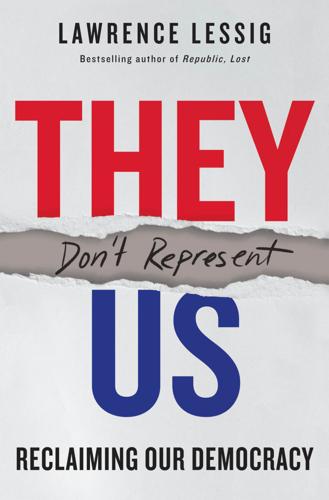
They Don't Represent Us: Reclaiming Our Democracy
by
Lawrence Lessig
Published 5 Nov 2019
But it is true that a national popular vote would give no special benefit to small states, or rural states. And it is also true that a national popular vote could fundamentally upset the Jeffersonian model that I described in chapter 1. If there isn’t ranked-choice voting at the state level, then the president could easily represent not a majority of Americans, but a plurality. In principle, ranked-choice voting should be able to solve this problem. However, elections are run state by state, and for ranked-choice voting to operate, the rankings would ideally have to cross state lines. That fact may be enough to render the system vulnerable constitutionally. If the aim of the Twelfth Amendment was to get us to a “majority of the majority” —a majority of electors chosen by a majority in each state—for president, then national popular vote has no mechanism to assure the ultimate result gets even close to that ideal.
…
The incumbent, Republican Bruce Poliquin, received a slight plurality in the first-place votes (46.2 percent vs. 45.5 percent). But when the third-party candidate was then dropped from the tally, Democrat Jared Golden jumped ahead of the incumbent with 50.5 percent of the vote. Across the country in 2018, had every district used ranked-choice voting, five other districts would have triggered a ranked-choice vote, with four likely going Republican, and one we can’t say for certain. Six districts out of 435 may make the idea of RCV seem unnecessary. If such a small number of districts are not electing a representative said to represent the majority, what’s the need for fancy new counting technologies?
…
That means there will be more multiparty contests. Which means without ranked-choice voting, there would be more plurality winners. More candidates competing is a good thing, not bad. More parties competing would be a good thing, not bad. But their competition should not weaken the representativeness of a representative. Instead, the strong competition of third parties should drive candidates in both parties to try to satisfy the demands of those third parties, as the candidates vie to be the second-choice votes of those third-party candidates. Ranked-choice voting thus both encourages more diversity and reinforces the idea of majoritarianism.
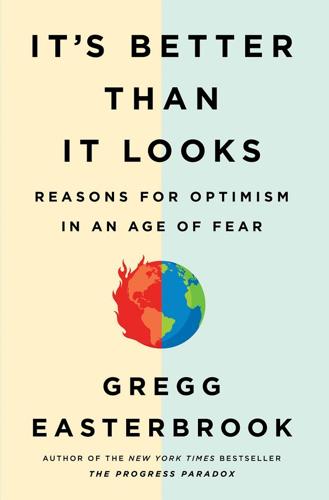
It's Better Than It Looks: Reasons for Optimism in an Age of Fear
by
Gregg Easterbrook
Published 20 Feb 2018
If disclosure rules and revolving-door prohibitions were substantive, voters would know who’s paying whom for access and whether interest groups across the spectrum, from oil barons to teachers’ unions, are really writing the legislation that lawmakers claim serves the public. Rank-Choice Voting. The duopoly system often forces voters to make queasy choices, as in 2016, when the only meaningful general-election options were the odious Trump and the oleaginous Clinton. The devil’s bargain enjoining Democrats and Republicans is that both make sure no party but one or the other attains office, while true independents are frozen out. In rank-choice voting (sometimes called “instant runoff”), voters order multiple candidates by preference; the result can be that independent or third-party candidates stand a better chance.
…
In rank-choice voting (sometimes called “instant runoff”), voters order multiple candidates by preference; the result can be that independent or third-party candidates stand a better chance. Maine and San Francisco use versions of rank-choice voting in state and local ballots; Australia and New Zealand employ the system for national elections. Rank-choice voting does not guarantee the best candidate wins—no method offers that. But in the United States, rank-choice would break the headlock the Democratic and Republican Parties have on what the Framers intended to be an open election system. Popular Election of the President. Two of the five most recent US presidential elections (2000 and 2016) concluded with the popular-vote loser taking the White House via the Electoral College.
…
DIAMOND, WHO THINKS TWO-PARTY DUOPOLY is the worst aspect of US politics, offers this reform prescription for reviving the country’s “democratic efficacy, energy, and self-confidence”: open primaries, repeal of laws that prevent primary losers from filing for the general election, an end to gerrymandering, resolution of the lobbyist revolving-door problem, rank-choice voting, and presidential election via popular vote. Let’s examine each of his ideas. Open Primaries. Fewer than half of America’s states hold open primaries in which voters may cast ballots for any party. The others allow only registered party members to vote, and only for their party. This is done to discourage third and fourth parties; those who seek a voice in primaries must declare as a Democrat or Republican.
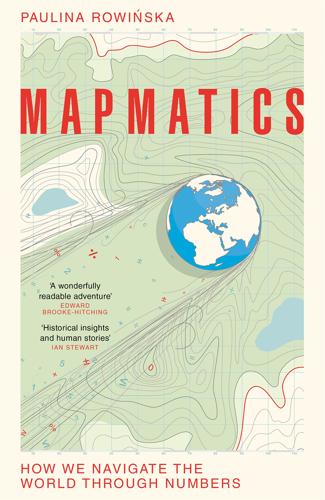
Mapmatics: How We Navigate the World Through Numbers
by
Paulina Rowinska
Published 5 Jun 2024
drawing large districts to dilute Black votes: Strategy 1, Recommendation 3, ‘Amend or repeal and replace the 1967 law. . .’, in ‘Our Common Purpose: Reinventing American Democracy for the 21st Century’, report of Commission on the Practice of Democratic Citizenship, American Academy of Arts and Sciences, June 2020, https://www.amacad.org/ourcommonpurpose/report. which eliminates the least-preferred candidates: ‘Ranked-Choice Voting (RCV)’, Ballotpedia, n.d., accessed 1 June 2023, https://ballotpedia.org/Ranked-choice_voting_(RCV). proportional representation of minority groups: Gerdus Benade et al., ‘Ranked Choice Voting and Minority Representation’, unpublished manuscript, 18 February 2021, last revised 14 July 2022, https://doi.org/10.2139/ssrn.3778021. their children were currently assigned to: Alvin Chang, ‘School Segregation Didn’t Go Away.
…
Since 1967, congressional multi-member districts have been illegal to prevent states (mostly in the South) from drawing large districts to dilute Black votes. The suppression of minority groups remains a danger, so the system of counting votes would need to change to ensure that marginalized voices are heard. In the ranked-choice voting system, for example, voters rank their candidates in the order of preference, which eliminates the least-preferred candidates. Studies suggest that multi-member districts with ranked-choice voting contribute to proportional representation of minority groups. Implementing these changes – from independent redistricting commissions to alternative voting systems – wouldn’t be easy and, by itself, wouldn’t guarantee fair elections.
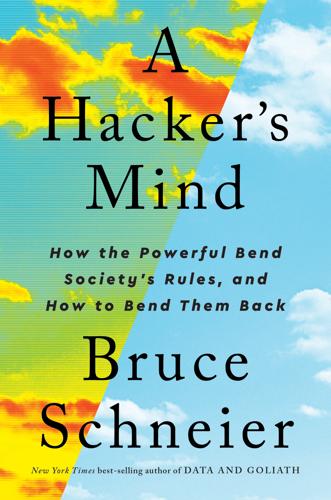
A Hacker's Mind: How the Powerful Bend Society's Rules, and How to Bend Them Back
by
Bruce Schneier
Published 7 Feb 2023
In the US, the general vulnerability is the two-party system, but vulnerability also lies in the first-past-the-post winner-take-all system of elections. Because we don’t require that candidates get a majority of the vote, but merely a plurality, political candidates are less likely to win if another candidate has a similar policy profile (or even a similar name) and splits the votes of would-be supporters. One fix is ranked-choice voting, in which voters rank their choices for an office, the lowest-scoring candidate is eliminated, and votes for those bested candidates are redistributed in sequential “runoffs” until one achieves a majority. A ranked-choice system prevents third-party spoilers (a would-be spoiler’s votes are just reallocated to a different candidate, most likely one from whom they were intended to siphon support), and helps to ensure that the candidate most acceptable to a true majority of the electorate wins the election.
…
See administrative burdens political hacks AI hacking and, 220–22, 225–26, 274n design process and, 60 fear and, 196, 197 lobbying as, 77, 78, 146–47 norms and, 66–67 See also election hacks; legislative process hacks poll taxes, 164 pop-up ads, 183, 184 Powell, Colin, 192 power advantages. See wealth/power private equity, 101–2 Protestant Reformation, 72 psychotherapy, 217 pump-and-dump, 80–81 Quibi, 100–101 ranked-choice voting, 171 real estate hacks, 86–88 reciprocation, 217 recommendation engines, 236 Reconstruction, 161–62 red-teaming, 56, 77, 126–27, 149 Redeemers, 161–62 regulation accountability and, 68 banking, 74 financial exchange hacks and, 84 governance systems, 245–48 market hacks and, 94 real estate hacks and, 87–88 See also regulation avoidance regulation avoidance, 123–27 financial exchange hacks and, 82 gig economy and, 123–25, 264n jurisdictional rules and, 131 regulatory capture, 75–77, 91, 116–18 ride-sharing apps and, 123–24, 264n “too big to fail” hack and, 97 wealth/power advantages and, 121 Regulation Q, 74, 75 regulatory capture, 75–77, 91, 116–18 religious hacks, 71–72, 73, 85, 111, 139–40, 260n resilience, 28, 67–68 responsible disclosure, 89–90 rewards, 184, 186, 231–35, 240 ride-sharing apps, 99, 100, 101, 116, 123–25, 264n Riegle-Neal Interstate Banking and Branching Efficiency Act (1994), 75 risk analysis, 195–96 robotics, 208, 217–19, 222–23 See also AI hacking; AI systems Rodriguez, Alex, 170 Rodríguez, Jose, 170 Roombas, 217 Rosenblum, Jeremy, 126–27 rules, 18–19, 25, 232 Russell, Stuart, 233 Sahu, Lakhan, 170–71 Saunders, Don, 31 script kiddies, 22 secure systems design, 59, 85 Securities Act (1933), 82 Securities Exchange Act (1934), 80 Sedol, Lee, 212 segmentation, 60 self-driving cars, 209–10 SGT STAR, 188 shoplifting, 63, 68 SIM swapping, 191 simplicity, 59, 80 Siri, 217 skimming, 33 Smith, Adam, 93 social engineering, 191–92, 216 social media, 184–85, 186–87 soft money, 169 SoftBank, 99 SolarWinds, 54–55, 60, 145 South Carolina v.
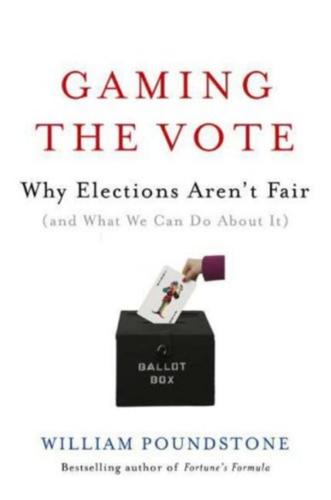
Gaming the Vote: Why Elections Aren't Fair (And What We Can Do About It)
by
William Poundstone
Published 5 Feb 2008
"In IRV, every time there is a near-tie among two no-hope candidates, we have to wait, and wait, and wait, until we have the exact vote totals for the Flat- Earth candidate and for the Alien- Kidnapping candidate ... before we can finally decide which one to eliminate in the first 170 Instant Runoff round," explains mathematician Warren D. Smith. "Only then can we proceed to the second round." San Francisco's election board was realistic enough to call its system "ranked-choice" voting, They didn't want people expecting an instant result. In the city's first IRV election, in November 2004, "software problems" were blamed for delaying results for several days, \7\ TEN Who's Afraid of the Big Bad Cycle? Abraham Lincoln's firstborn son, Robert Todd Lincoln, is remem- bered best for a morbid coincidence.
…
DeWitt Casting the most effective cumulative ballot requires accumte knowledge of party strength. In pmctice, political parties tell followers how to vole in order to SeCure the greatest possible number of seats for the party. Impossibility Theorem The foundation of modern voting theory. Economist Kenneth Arrow (b. 1921) demonstrated that no ranked-choice voting ,ystem can meet a set of commonsense conditions; therefore all such ways of voting are defective. The impossibility theorem has led some scholars to conclude that democracy is fatally Aawed. Scoring systems (such as approval and range voting) fall outside the scope of the impossibility theorem.
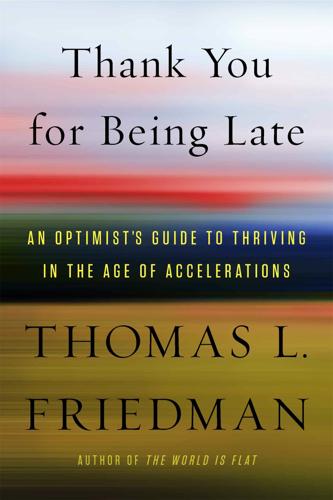
Thank You for Being Late: An Optimist's Guide to Thriving in the Age of Accelerations
by
Thomas L. Friedman
Published 22 Nov 2016
The result is a Congress made up of more people from the far right or far left than the true disposition in the country. With more center-left Democrats and more center-right Republicans, it should be possible to build more legislative coalitions from the center out rather than from the extremes in. She would also introduce ranked-choice voting in all Senate and House elections. In this system, instead of voting for just one candidate, you rank each candidate in order of preference. If no one gets a majority, the candidate with the least number of first-preference votes is eliminated. Then his or her votes are redistributed to those voters’ second preferences, and that process continues until somebody has a majority.
…
.; Cold War growth in; postwar; progressivism and ecosystems; degradation of; resiliency of Edison, Thomas education: Common Core standards for; concentration and; mentors in; population growth and; self-motivation and; self-ownership in; skill sets and; socioeconomic disparity and; of women; workforce and education, innovation in; advances in connectivity and; in age of accelerations; global flows and; intelligent assistants and; online courses in; supernova and; tax deductions for; see also lifelong learning Edwards, Bruce edX Egypt; 2011 revolution in; U.S. military aid to Egyptian Army elections, U.S.: gerrymandering and; ranked-choice voting in Electronics El Salvador e-mail; messaging apps vs. “Emerald City of Giving Does Exist” (New York Times article) emerging markets Emerson, Ralph Waldo empathy; live video and Empire of Wealth, An (Gordon) encryption Energryn energy, technological change and energy efficiency Enestvedt, Harold Enova Environmental Protection Agency, U.S.
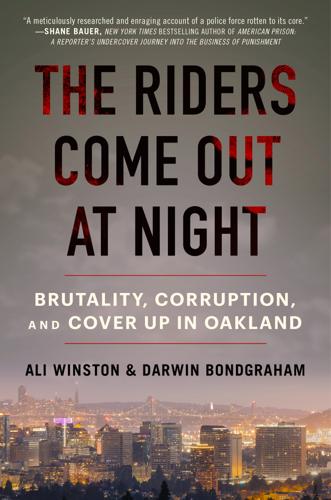
The Riders Come Out at Night: Brutality, Corruption, and Cover-Up in Oakland
by
Ali Winston
and
Darwin Bondgraham
Published 10 Jan 2023
But ask him to make a budget where he has to go through all the little details and mediate between community groups—that’s just not his thing.”26 Quan was one of ten candidates who leapt at the opportunity to become mayor, despite Oakland’s financial ruin, stalled police reforms, 16 percent unemployment, and a tidal wave of foreclosures. The city was using “ranked-choice voting” for the first time, a system in which a candidate must win more than 50 percent of the overall vote to be declared the winner. After several rounds of ballots were tallied, Quan triumphed by a margin of roughly two thousand votes, besting former state senator Don Perata, despite the latter’s endorsements from Jerry Brown and the OPOA.27 Quan thought Oakland needed more than a thousand officers, but as the author of Measure Y, she preferred community policing and nonpolice violence prevention programs.
…
Robert Gammon, “Dellums Fails to Pay at Least $239,000 in Taxes,” East Bay Express (Oakland), November 2, 2009. 26. Angela Hill and Kristin Bender, “Oakland Mayor Ron Dellums Won’t Seek Second Term,” East Bay Times (Walnut Creek, CA), August 4, 2010. 27. Alameda County Registrar of Voters, ranked-choice voting results report for November 2, 2010, General Election, accessed at https://www.acvote.org/election-information/archived-elections. 28. Terry Bowman, “Grievant’s post arbitration brief,” in the matter of the appeal of termination of Officer John (Jack) Kelly, 25. 29. Shoshana Walter, “Occupy Protests Test the Mayor of Oakland,” New York Times, October 29, 2011. 30.
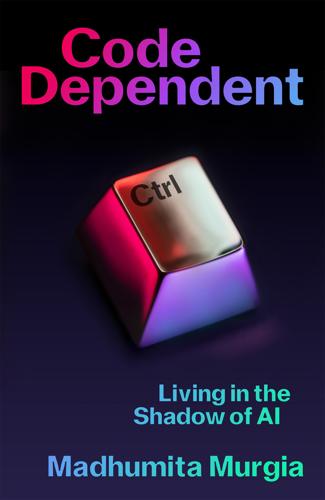
Code Dependent: Living in the Shadow of AI
by
Madhumita Murgia
Published 20 Mar 2024
He is, in fact, inherently an activist, living by the principle that any system can be changed if you care enough to do something about it. He has photographed political rallies and canvassed for candidates around California. He has coded a website that offers a visual explainer of an alternative voting system called rank-choice voting, which he believes is a more democratic method of polling the public. But he doesn’t save his efforts just for the big things. He happily agrees he is a micro-social-justice warrior. One time, he bought a microwave curry from the vegan section of the supermarket Target, which contained ghee, a dairy product.
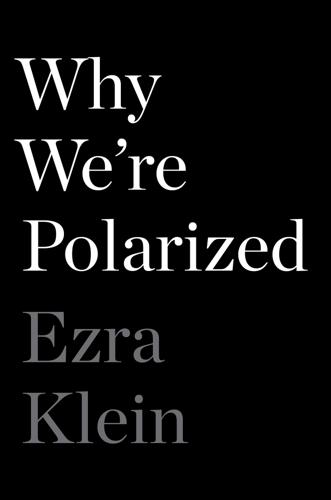
Why We're Polarized
by
Ezra Klein
Published 28 Jan 2020
We’re used to states carving themselves into gerrymandered congressional districts, but the Constitution doesn’t demand that structure, and other countries don’t use that structure. A smarter approach, as Lee Drutman, a senior fellow at the think tank New America, argues, would be to combine multimember districts with ranked-choice voting. Under this system, states would break into electoral zones represented by multiple members of Congress. Voters would list their favorite candidates in order. The least popular candidate would be eliminated, and her voters would see their second choice counted. In, say, a three-member zone, this process would continue until the top three candidates were discovered.
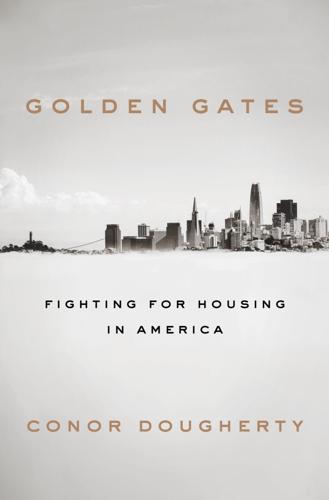
Golden Gates: Fighting for Housing in America
by
Conor Dougherty
Published 18 Feb 2020
Nevertheless, you had two young women, both new moms, both running as mods, both with backgrounds in housing, both talking about the need to build lots more of it, and both lacking the union support and establishment backing that had blessed Matt Haney. Similar candidates are normally a problem, because similar candidates split the vote. In San Francisco, similarities were an opportunity because of something called ranked-choice voting. Instead of voting for a single candidate, local voters rank their top three choices. If one of them gets a majority, he or she wins. But when no one gets a majority, which happens often, the city performs an instant runoff in which the candidate with the fewest first-place votes is eliminated and his or her second- and third-choice votes are redistributed to the other candidates until someone gets a majority.
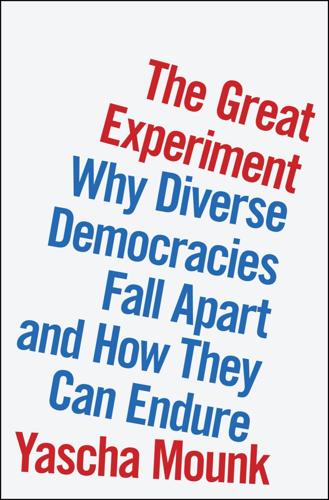
The Great Experiment: Why Diverse Democracies Fall Apart and How They Can Endure
by
Yascha Mounk
Published 19 Apr 2022
GO TO NOTE REFERENCE IN TEXT In keeping with the informal “Hastert Rule”: See, for example, Tara Golshan, “The ‘Hastert Rule,’ the Reason a DACA Deal Could Fail in the House, Explained,” Vox, January 24, 2018, https://www.vox.com/policy-and-politics/2018/1/24/16916898/hastert-rule-daca-could-fail-house-ryan, and Yascha Mounk, “The Rise of McPolitics,” New Yorker, June 25, 2018, https://www.newyorker.com/magazine/2018/07/02/the-rise-of-mcpolitics. GO TO NOTE REFERENCE IN TEXT Maine, for example, allows voters: Patrick Whittle, “Maine’s Ranked Choice Voting Rules and Procedures, Explained,” AP News, November 2, 2020, https://apnews.com/article/election-2020-senate-elections-voting-maine-united-states-355f2859cf5dabf25bb0bb953f9c66bd. GO TO NOTE REFERENCE IN TEXT In California, meanwhile, the two candidates: “How California’s ‘Jungle Primary’ System Works,” NPR, June 5, 2018, https://www.npr.org/2018/06/05/617250124/how-californias-jungle-primary-system-works.
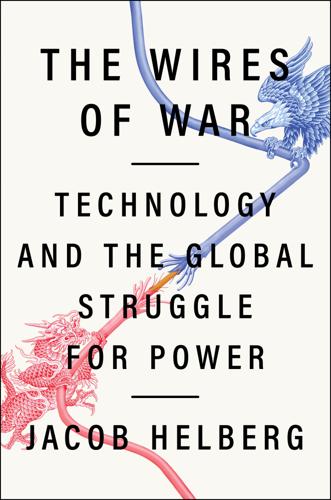
The Wires of War: Technology and the Global Struggle for Power
by
Jacob Helberg
Published 11 Oct 2021
How can the federal government invest in job training or overhaul our immigration system—policies that would allow us to compete with China—when our two major political parties spend so much time fighting that we can barely keep the lights on? There is no simple solution to America’s toxic political climate. Advocates have suggested structural reforms like ranked-choice voting and nonpartisan commissions to draw the lines of legislative districts. Others have proposed some form of national service to help break down barriers in race, class, and political affiliation. It’s even been suggested that we handcuff new Democratic and Republican members of Congress together for a year to force them to learn to get along—an idea that is as impractical as it is tempting.
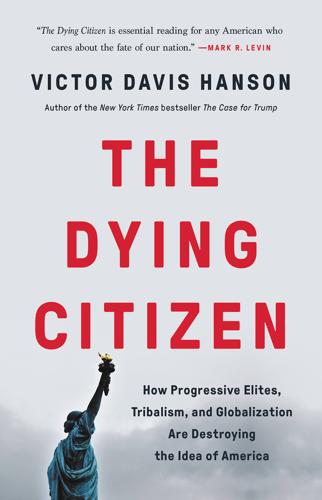
The Dying Citizen: How Progressive Elites, Tribalism, and Globalization Are Destroying the Idea of America
by
Victor Davis Hanson
Published 15 Nov 2021
Political scientist Terry Moe, for example, argues that the Founders “designed a government for a tiny agrarian nation—and they assumed that, as society changed, future generations would change the Constitution to meet new and evolving needs. But future generations didn’t do that. Instead, they put it on a pedestal to be worshipped.” Democracy scholar Larry Diamond has argued that to ensure fairness in American presidential and national elections, we need both to abolish the Electoral College and to adopt ranked-choice voting (RCV), that is, allowing citizens to rank their preferences for multiple candidates, as a way to green-light further changes in how we conduct elections. Of the latter, he argues, “Once RCV is adopted, with its greater incentives to moderation and diversity in our electoral process, other democratic reforms may become more achievable.”
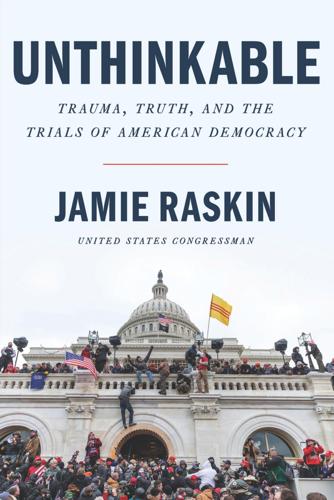
Unthinkable: Trauma, Truth, and the Trials of American Democracy
by
Jamie Raskin
Published 4 Jan 2022
Like his fellow Virginian Thomas Jefferson, who said, “[I]n matters of style, swim with the current, but in matters of principle, stand like a rock,” Don Beyer got along with everyone because of his essential sweetness and exceptional manners, but he was a fountain of nimble and excellent legislative proposals to advance strong democracy and greater fairness in the United States. Don had been my key collaborator on ranked-choice voting ever since I got to Congress and was a champion democracy reformer. Seeing Don, I asked him if he was ready to impeach the first president who ever tried to stage a coup against America. “This reminds me,” he said, “of a joke we have in the Foreign Service. Why will there never be a coup in America?”
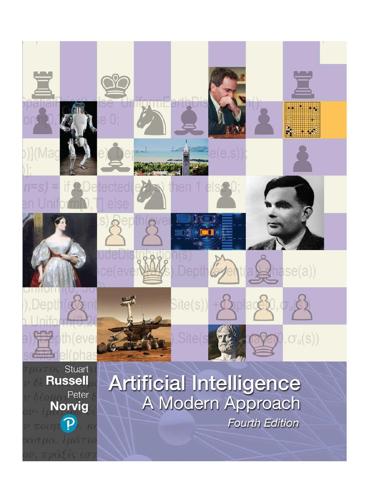
Artificial Intelligence: A Modern Approach
by
Stuart Russell
and
Peter Norvig
Published 14 Jul 2019
The Handbook of Computational Social Choice provides a range of articles surveying research topics and methods in this field (Brandt et al., 2016). Arrow’s theorem lists desired properties of a voting system and proves that is impossible to achieve all of them (Arrow, 1951). Das– gupta and Maskin (2008) show that majority rule (not plurality rule, and not ranked choice voting) is the most robust voting system. The computational complexity of manipulating elections was first studied by Bartholdi et al. (1989). We have barely skimmed the surface of work on negotiation in multiagent planning. Durfee and Lesser (1989) discuss how tasks can be shared out among agents by negotiation.